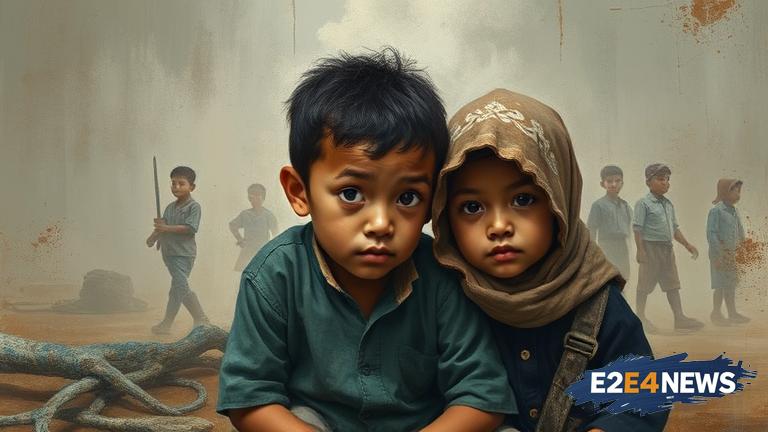The Indonesian government has been criticized for its failure to protect the country’s children from violence and neglect. Despite being a signatory to the United Nations Convention on the Rights of the Child, Indonesia has struggled to provide adequate care and support to its young citizens. The consequences of this neglect are stark, with many children facing physical and emotional abuse, exploitation, and even death. According to reports, thousands of children in Indonesia are victims of violence every year, with many more suffering in silence. The problem is particularly acute in rural areas, where access to social services and support is limited. Children in these areas are often forced to work in hazardous conditions, with little protection from exploitation. The Indonesian government has introduced various initiatives aimed at protecting children, but these efforts have been hindered by a lack of funding and resources. Corruption and inefficiency have also undermined the effectiveness of these programs. As a result, many children in Indonesia are left to fend for themselves, with devastating consequences. The psychological trauma caused by violence and neglect can have long-lasting effects, impacting a child’s ability to learn, form relationships, and thrive in adulthood. Furthermore, the failure to protect children from violence and exploitation can have broader societal implications, contributing to cycles of poverty, inequality, and social unrest. The international community has a critical role to play in supporting Indonesia’s efforts to protect its children. This includes providing funding and technical assistance to support the development of social services and protection programs. It also requires holding the Indonesian government accountable for its commitments to protecting children’s rights. Ultimately, the protection of Indonesia’s children requires a concerted effort from government, civil society, and the international community. By working together, it is possible to create a safer, more supportive environment for all children in Indonesia. The Indonesian government must prioritize the protection of its children, allocating sufficient resources and funding to support social services and protection programs. This includes investing in education, healthcare, and social welfare programs that support the development and well-being of children. The government must also take steps to address corruption and inefficiency, ensuring that programs and services are delivered effectively and efficiently. Civil society organizations and the international community have a critical role to play in supporting these efforts, providing funding, technical assistance, and advocacy to promote the protection of children’s rights. By working together, it is possible to create a brighter future for Indonesia’s children, one that is free from violence, neglect, and exploitation. The protection of children is not only a moral imperative, but also a critical investment in Indonesia’s future prosperity and stability. As the country continues to grow and develop, it is essential that the protection of children is prioritized, ensuring that all young citizens have the opportunity to thrive and reach their full potential. The consequences of failing to protect children are too great to ignore, with the potential to undermine Indonesia’s long-term stability and prosperity. It is time for the Indonesian government, civil society, and the international community to come together to address this critical issue, ensuring that all children in Indonesia are protected from violence and neglect.
